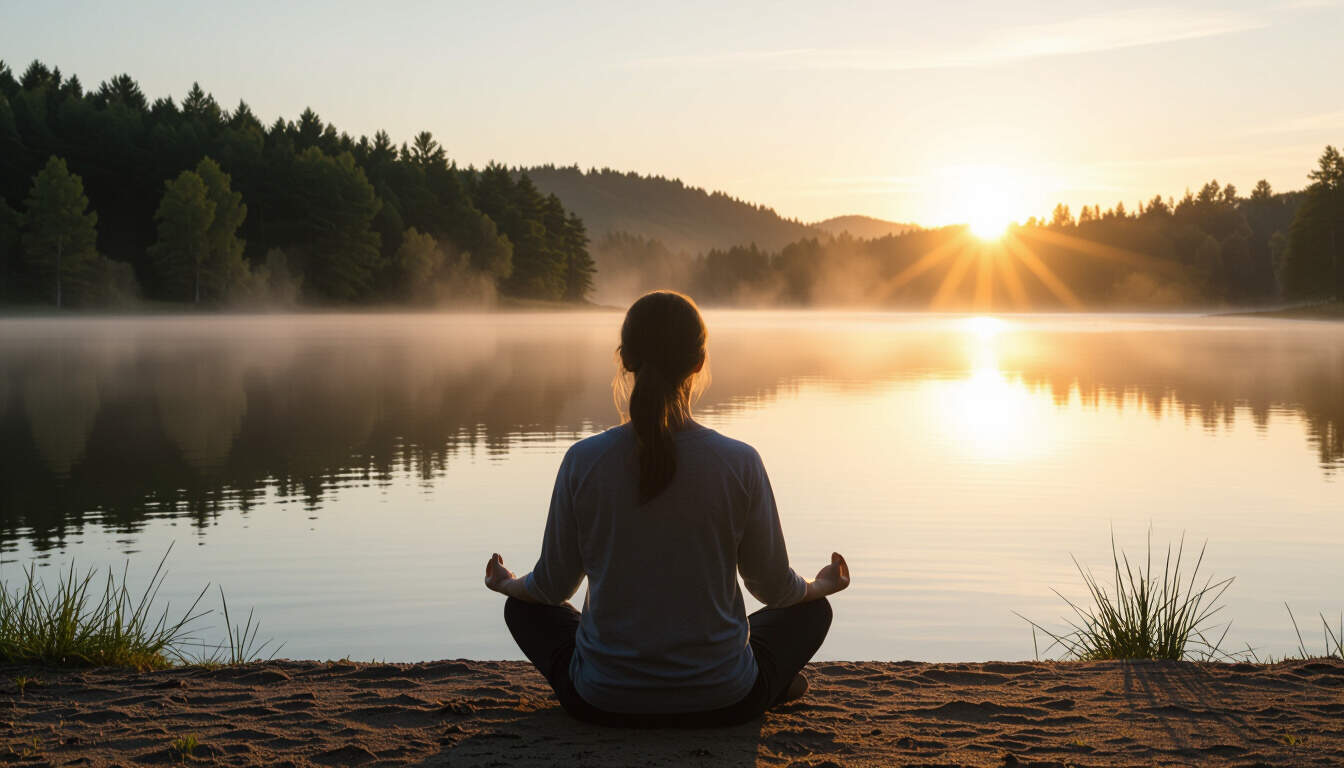Daily Mindfulness Challenges for Enhanced Mental Clarity
 by Lilian Nienow
by Lilian Nienow
Discover how simple daily mindfulness challenges can improve mental clarity and support personal development. These practices help busy professionals and students build routines that foster focus and well-being, leading to a more balanced life.

Daily mindfulness challenges offer a straightforward way to build habits that promote mental clarity and personal development. These challenges encourage regular practice, helping individuals stay present and focused in their everyday lives.
One key aspect of daily mindfulness challenges is their simplicity. For example, starting with just a few minutes each day can make a big difference. Mindfulness practices like this allow people to pause and reflect, reducing stress over time.
Many find that incorporating these challenges into routines leads to noticeable improvements. Breathing exercises, for instance, serve as an easy entry point. By focusing on breath, individuals can center themselves amid busy schedules.
To get started, consider basic activities that fit into daily life. A morning routine might include sitting quietly for five minutes. This helps set a positive tone for the day ahead.
Challenges often involve awareness of surroundings. Noticing small details in the environment can enhance appreciation for the present moment. Such practices support overall well-being without requiring much time.
For those with packed schedules, like students or professionals, adapting challenges is essential. Short sessions during breaks can provide relief from daily pressures. Over time, these moments add up to greater mental clarity.
Let us look at specific examples. One common challenge is the gratitude exercise. Each evening, noting three positive things from the day fosters a sense of contentment. Challenges like this build resilience and encourage growth.
Another approach includes mindful walking. While moving from one place to another, pay attention to steps and sensations. This turns ordinary activities into opportunities for reflection.
Body scans are also popular. Lying down and mentally checking in with different parts of the body promotes relaxation. Regular use of these techniques can lead to better sleep and reduced anxiety.
Progress comes from consistency rather than perfection. Missing a day does not mean failure; instead, it offers a chance to restart. This mindset supports long-term personal development.
In practice, tracking challenges can be helpful. Keeping a simple journal allows individuals to see patterns and improvements. Over weeks, entries might show increased focus and calmer responses to stress.
For students, integrating mindfulness into study sessions is beneficial. Before starting homework, a brief pause can sharpen concentration. This leads to more effective learning and less overwhelm.
Professionals might use challenges during work hours. A quick mindful break between meetings can refresh the mind. Such strategies enhance productivity and job satisfaction.
The role of community should not be overlooked. Sharing experiences with others provides motivation. Group activities, like online forums, create a supportive network for participants.
Remember, the goal is sustainable change. Building these habits gradually ensures they become part of daily life. As individuals persist, they often report higher levels of energy and clarity.
To summarize, daily mindfulness challenges are accessible tools for anyone seeking improvement. They encourage regular engagement with the present, aiding in personal growth. With patience and practice, these challenges can transform routines and mindsets.
Benefits of Daily Practice
Daily mindfulness challenges bring several advantages. First, they improve focus by training the mind to stay on task. This is particularly useful in high-pressure environments.
Second, these practices reduce feelings of overload. By stepping back regularly, individuals gain perspective on their worries.
Finally, over time, challenges contribute to emotional balance. Handling situations with calm becomes easier, leading to stronger relationships.
Simple Steps to Begin
- Choose one challenge to start with, such as a daily breathing exercise.
- Set a specific time each day for practice.
- Start small, with just a few minutes, and gradually increase.
- Reflect on experiences to adjust as needed.
- Seek feedback from trusted peers for encouragement.
By following these steps, anyone can integrate mindfulness into their life. The results, from better mental clarity to enhanced well-being, make the effort worthwhile.
In closing, embracing daily mindfulness challenges opens doors to positive change. With consistent application, individuals can achieve a more centered and fulfilling existence.
